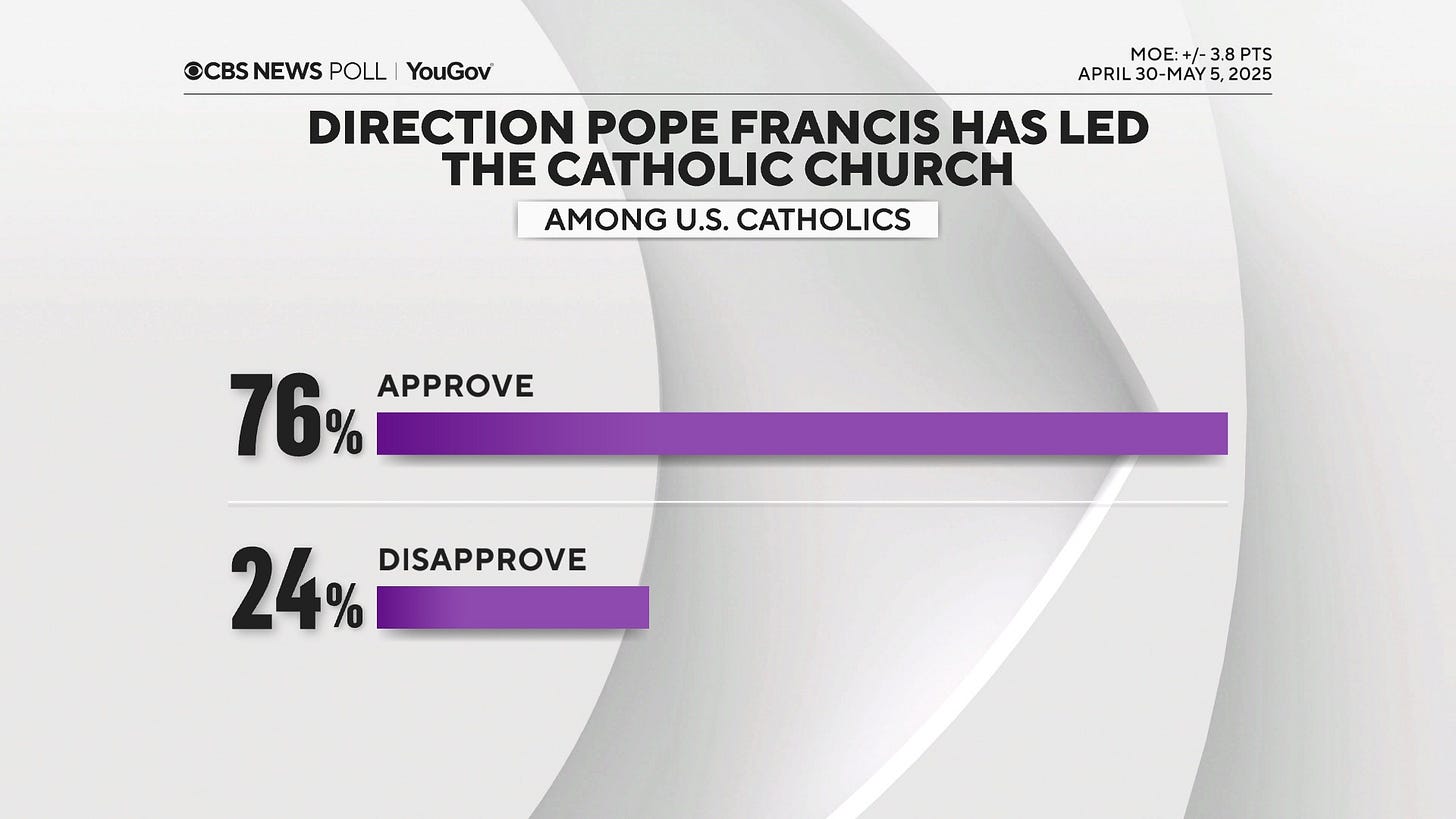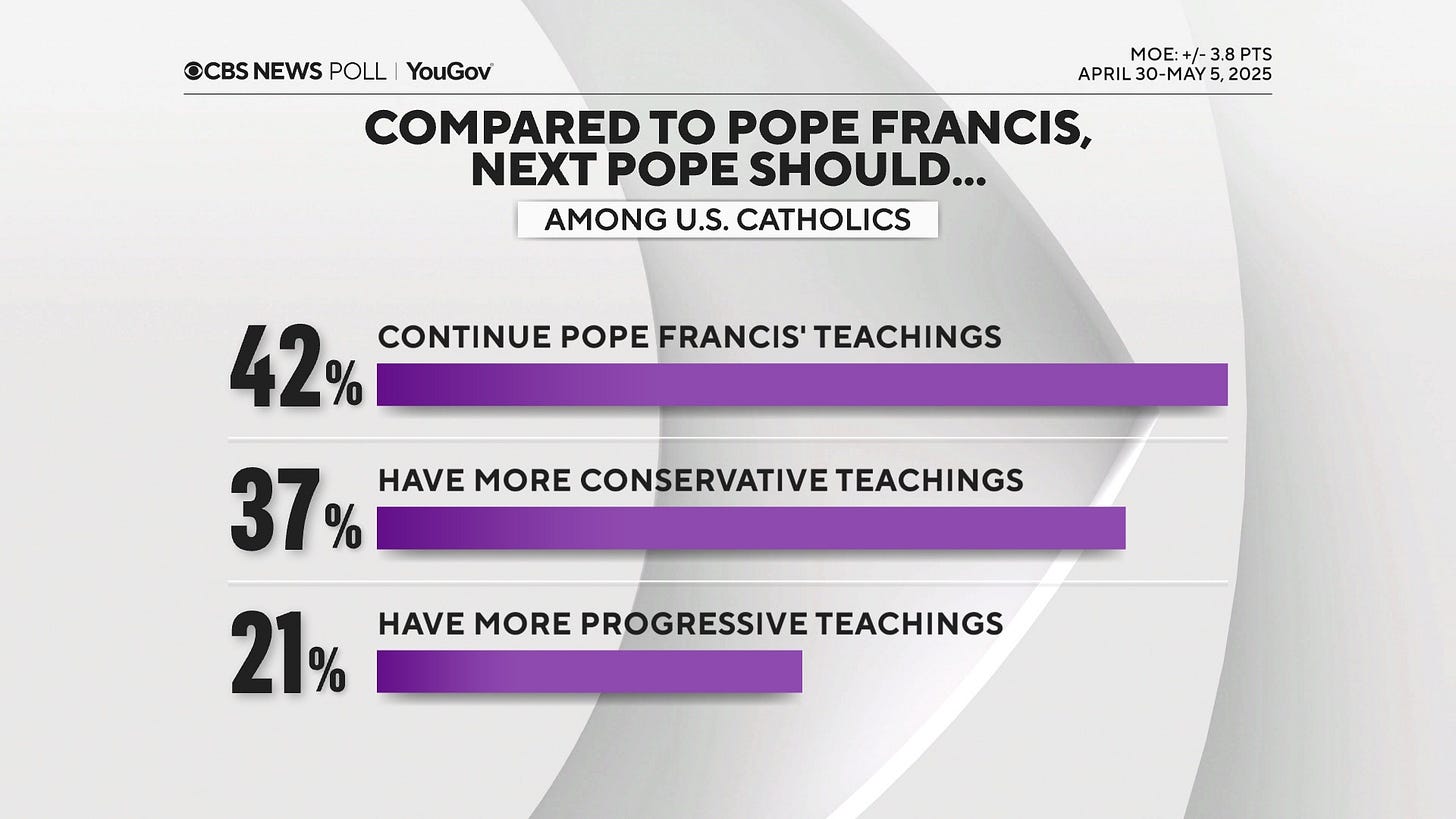An American Pope and Renewed Hope for a Fractured World
The College of Cardinals has issued a bold repudiation of nativism and signaled a renewed commitment to justice, inclusion, and global leadership in the face of America's moral decline.
I find myself oscillating between intellectual fascination and genuine astonishment at the selection of Cardinal Robert Prevost of Chicago, now Pope Leo XIV. The sheer improbability of this ecclesiastical development warrants serious examination.
The College of Cardinals, that bastion of institutional conservatism where change typically occurs at a glacial pace, has delivered what can only be described as a jaw-dropping, never-saw-that-coming theological plot twist. This papacy promises to be transformative precisely when moral leadership seems increasingly scarce in our fractured world and broken public discourse.
The selection of an American Pope represents a fascinating sociological and theological development. During my Georgetown years, I engaged in countless late-night discussions with fellow Catholic students regarding this very possibility. "Never," came the universal response, delivered with the certainty that accompanies unexamined institutional wisdom. Even our Jesuit professors, those masters of theological provocation, would dismiss the notion with intellectual finality.
This brings to mind Sister Mary Anthony's admonition during my confirmation preparation: "You cannot be both American and Catholic," she asserted with characteristic absolutism. "You must choose to prioritize one over the other." Her critique targeted the spiritual emptiness of American consumer culture, that peculiar national religion where salvation comes via Amazon Prime rather than divine grace.
Catholicism, when practiced authentically, represents a countercultural rejection of materialistic excess, a position Pope Francis embodied with his deliberate simplicity and rejection of papal ostentation. The inherent tension between American capitalist values and Catholic social teaching undoubtedly influenced the conclaves’ calculus. The conclave chose to go woke - that is, to care for all humanity in the image of Christ, kinda woke..
By selecting a Midwesterner, the College of Cardinals has provided a remarkably nuanced response to America's ecclesiastical polarization. Leo XIV emerges as a potential bridge between competing Catholic identities: the American pragmatism that builds wealthy private Catholic schools and funds endowments with ruthless efficiency and the theological traditions that question if the Catholicity we want and need to see are better found feeding the poor and teaching our children to volunteer and commit to serving the least among us.
Contemporary polling reveals American Catholics overwhelmingly desired continuity with Francis's theological orientation, his emphasis on mercy over dogmatism, and inclusion over exclusion. Leo XIV represents this continuity while simultaneously embodying a unique hemispheric blending of the spirit, soul, and cultures of North and South America.
His extensive missionary work in Peru (where he holds dual citizenship) provides him with direct experience of Catholicism's challenges in Latin America, a region where the Church once enjoyed cultural hegemony but now confronts both evangelical competition and growing secularism. These dynamics foreshadow similar patterns emerging in the United States, where Catholic identification remains strong but actual practice continues its steady decline.
The timing of this selection transcends mere church politics. It constitutes a sophisticated theological response to the troubling rise of ethnonationalism, political tribalism, and xenophobic rhetoric increasingly normalized in contemporary discourse. By selecting an American with deep Latin American connections, the conclave has delivered a subtle rebuke to nativist political movements.
This represents a direct message to American political leadership, a theological statement regarding immigration policy, social justice, and the authentic meaning of Christianity in practice rather than merely in performative proclamation. The Catholic Church, with its two-millennia perspective, clearly perceives certain contemporary political developments as existential threats to both authentic Christian values and global stability.
This was a message being sent by the Catholic Church that it would not be a passive participant in the bastardization of what Christianity in America means. Politicians throughout history have twisted the faith to their own selfish ends, and at least for the moment, the college of Cardinals has told America, “Enough!” Relishing in the hateful, cruel, and disrespectful tone and policies of the MAGA movement is the antithesis of Christian belief. To think otherwise makes one…well, American. Make no mistake, his selection as Pope and his choice of namesake were not coincidental. It was deliberate. And it was masterful.
The selection of "Leo" as a papal name carries profound historical resonance. Derived from the Latin for "lion," it connotes moral courage and intellectual leadership. That Pope Leo XIV's election coincided with the feast commemorating Saint Michael the Archangel, traditionally venerated as heaven's defender against darkness, seems a deliberate symbolic choice rather than mere coincidence.
Moreover, the name evokes the progressive legacy of Leo XIII, whose landmark encyclical Rerum Novarum established modern Catholic social teaching with its defense of workers' rights and critique of unfettered capitalism. This new Pope clearly positions himself within the Church's social justice tradition at a moment when economic inequality reaches levels unseen since the Gilded Age.
The conclave's message appears unambiguous: they sought a leader with intellectual conviction and moral clarity, aligned with Francis's vision yet familiar with America's unique cultural contradictions. The Catholic Church evidently perceives contemporary socio-political developments as potentially threatening to both authentic Christian values and social cohesion.
At 69, Pope Leo's potential tenure as Successor to Peter extends decades into the future. This is not a caretaker papacy but rather a definitive directional shift signaling that internal divisions within the Curia and traditionalist movements may finally find resolution, or at least direction: We are moving forward..
The Catholic Church appears to be embracing theological engagement with modernity, a conversation now advanced beyond preliminary skirmishes into substantive dialogue. Leo XIV represents not merely a transitional figure but a transformational one.
There exists a striking providential symmetry in Leo XIV's election occurring precisely on the 80th anniversary of Nazi Germany's unconditional surrender on May 8, 1945. That momentous capitulation marked the end of fascism's darkest expression and ushered in a period of painful rebuilding, gradual reconciliation, and renewed commitment to human dignity across previously unbridgeable divides.
Today's ecclesiastical transition similarly offers hope for healing divisions, rebuilding spiritual communities, and renewing commitment to human dignity in an era of algorithmic tribalism and ideological absolutism. Just as the world found new possibilities amid the rubble of World War II, the election of an American Pope suggests the potential for bridging seemingly insurmountable differences through moral leadership and intellectual wisdom.
Both historical moments, separated by exactly eight decades, remind us that even in our most fractured times, the human capacity for transformation and hope remains our most underutilized resource. Pope Leo XIV now stands as a symbol of this enduring truth, potentially guiding the Catholic faithful and people of goodwill through perhaps two decades of consequential history yet to unfold.







As a non-Catholic, I find this really interesting and I hope your analysis proves accurate. Given your track record, it probably will.
Well
Thought and written
Thank you